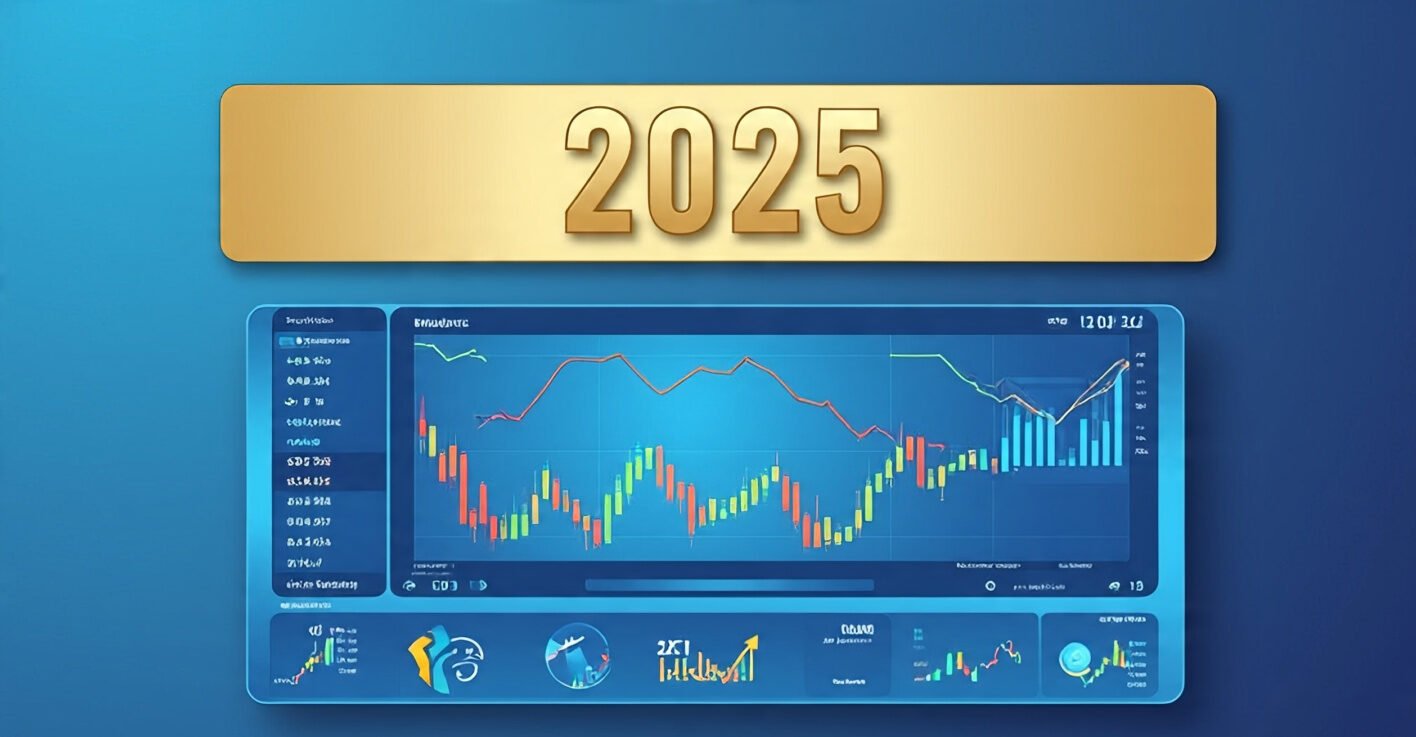The cryptocurrency landscape has evolved dramatically, and finding the best cryptocurrency trading platform 2025 has become crucial for both beginners and experienced traders. With over 600 million crypto users worldwide and the market cap exceeding $2.3 trillion, choosing the right platform can make the difference between profitable trading and costly mistakes. Whether you’re looking to buy your first Bitcoin, explore DeFi opportunities, or engage in advanced derivatives trading, this comprehensive guide will help you navigate the complex world of cryptocurrency exchanges and identify the platform that perfectly matches your trading goals and risk tolerance.
What Makes the Best Cryptocurrency Trading Platform in 2025?
When evaluating crypto trading platforms, several critical factors separate the leaders from the rest. The best cryptocurrency trading platform 2025 must excel across multiple dimensions to provide users with a secure, profitable, and user-friendly experience.
Security remains the paramount concern. With hackers stealing billions from exchanges annually, top platforms implement military-grade encryption, cold storage for user funds, and comprehensive insurance policies. Multi-factor authentication, withdrawal whitelisting, and advanced monitoring systems have become standard features among leading exchanges.
User experience has also reached new heights. Modern platforms offer intuitive interfaces that cater to both crypto newcomers and professional traders. Mobile applications provide full functionality, allowing users to trade, stake, and manage portfolios on the go. Educational resources, demo accounts, and 24/7 customer support have become essential features.
Trading fees significantly impact profitability, especially for active traders. The most competitive platforms offer maker-taker fee structures starting as low as 0.1%, with additional discounts for high-volume traders and native token holders. Some platforms have introduced zero-fee trading for specific pairs or conditions.
Key Features to Look For
Advanced Trading Tools: Professional-grade charting software, technical indicators, and algorithmic trading capabilities distinguish premium platforms from basic exchanges. Real-time market data, order book depth, and customizable dashboards enable informed decision-making.
Diverse Asset Selection: Leading platforms support hundreds of cryptocurrencies, from established coins like Bitcoin and Ethereum to emerging altcoins and DeFi tokens. Cross-chain compatibility and support for various blockchain networks expand trading opportunities.
Regulatory Compliance: Licensed platforms operating under regulatory frameworks provide additional security and legitimacy. Compliance with KYC/AML requirements, regular audits, and transparent operations build user trust.
Top Cryptocurrency Trading Platforms for 2025

Binance: The Global Market Leader
Binance continues to dominate the cryptocurrency exchange landscape with the highest trading volume and most extensive feature set. The platform supports over 500 trading pairs and offers spot trading, futures, options, and margin trading across multiple markets.
The exchange’s fee structure remains highly competitive, with spot trading fees starting at 0.1% and decreasing based on trading volume and BNB token holdings. Binance’s native token (BNB) provides additional benefits, including fee discounts and access to exclusive features.
Security measures include SAFU (Secure Asset Fund for Users), which protects user funds in emergency situations. The platform employs advanced risk management systems and maintains the majority of user funds in cold storage.
Pros: Lowest fees, extensive cryptocurrency selection, advanced trading features, high liquidity Cons: Complex interface for beginners, regulatory concerns in some jurisdictions
Coinbase: The Beginner-Friendly Choice
Coinbase has established itself as the premier entry point for new cryptocurrency investors, particularly in North America. The platform’s user-friendly interface and educational resources make it ideal for those taking their first steps into crypto trading.
The exchange operates under strict regulatory oversight in multiple jurisdictions, providing users with additional peace of mind. Coinbase’s insurance coverage protects against potential security breaches, while their cold storage practices secure the majority of customer funds.
Coinbase Pro offers advanced trading features for experienced users, including lower fees and professional-grade tools. The platform supports over 200 cryptocurrencies and provides direct fiat on-ramps in numerous countries.
Pros: Regulatory compliance, user-friendly interface, strong security, educational resources Cons: Higher fees compared to competitors, limited advanced trading features
Kraken: The Security-First Platform
Kraken has built a reputation as one of the most secure cryptocurrency exchanges, having never experienced a successful hack in its operational history. The platform offers comprehensive trading services, including spot, margin, and futures trading.
The exchange provides extensive cryptocurrency support, including lesser-known altcoins and traditional fiat currencies. Kraken’s fee structure is competitive, with maker fees as low as 0% for high-volume traders.
Advanced security features include global settings locks, master keys, and PGP/GPG encryption for email communications. The platform’s proof-of-reserves audits provide transparency regarding user fund custody.
Pros: Excellent security record, comprehensive features, strong regulatory compliance, transparent operations Cons: Complex interface, limited customer support availability
Essential Features of Modern Trading Platforms
Mobile Trading Applications
The best cryptocurrency trading platform 2025 must provide seamless mobile experiences. Modern traders demand full functionality on their smartphones, from basic buy/sell orders to advanced technical analysis. Leading platforms offer native iOS and Android applications with push notifications, biometric security, and offline portfolio tracking.
Mobile trading has become increasingly sophisticated, with some platforms offering features previously exclusive to desktop environments. Advanced charting tools, real-time market data, and social trading features enhance the mobile trading experience.
DeFi Integration and Staking Services
Decentralized Finance (DeFi) integration has become a crucial differentiator among crypto platforms. Top exchanges now offer direct access to DeFi protocols, allowing users to provide liquidity, participate in yield farming, and stake various cryptocurrencies without leaving the platform.
Staking services provide passive income opportunities for cryptocurrency holders. Leading platforms offer competitive annual percentage yields (APY) on popular staking assets like Ethereum, Cardano, and Polkadot. Some platforms provide flexible staking options with daily payouts and no lock-up periods.
Advanced Order Types and Trading Tools
Professional traders require sophisticated order types beyond basic market and limit orders. Stop-loss orders, take-profit orders, and trailing stops help manage risk and automate trading strategies. Some platforms offer advanced order types like iceberg orders and time-weighted average price (TWAP) orders.
Technical analysis tools have become standard features on premium platforms. Comprehensive charting packages include hundreds of technical indicators, drawing tools, and customizable layouts. Integration with third-party analysis tools like TradingView enhances the trading experience.
Security Measures and Fund Protection
Cold Storage and Hot Wallet Management
The best cryptocurrency trading platform 2025 implements robust fund security measures. Cold storage keeps the majority of user funds offline, protecting against online attacks. Leading platforms store 95% or more of customer funds in cold storage, with only a small percentage in hot wallets for daily operations.
Multi-signature wallets add additional security layers by requiring multiple private keys to authorize transactions. This approach prevents single points of failure and reduces the risk of insider threats.
Insurance Coverage and Emergency Funds
Insurance policies protect users against potential losses from security breaches or operational failures. Leading platforms maintain comprehensive insurance coverage through traditional insurers or self-funded emergency reserves.
Binance’s SAFU fund, Coinbase’s FDIC insurance for USD deposits, and Kraken’s proof-of-reserves audits demonstrate different approaches to fund protection. Users should understand the specific protections offered by their chosen platform.
Two-Factor Authentication and Account Security
Multi-factor authentication has become mandatory for cryptocurrency trading. SMS-based 2FA provides basic protection, while authenticator applications offer enhanced security. Hardware security keys represent the highest level of account protection available to retail users.
Advanced security features include device whitelisting, withdrawal address whitelisting, and anti-phishing codes. Some platforms implement behavioral analysis to detect unusual account activity and prevent unauthorized access.
Comparing Trading Fees and Cost Structures
Understanding Maker-Taker Fee Models
Most cryptocurrency exchanges employ maker-taker fee structures, where makers (who add liquidity) pay lower fees than takers (who remove liquidity). This model incentivizes market making and improves overall liquidity.
Typical maker fees range from 0% to 0.25%, while taker fees range from 0.1% to 0.5%. High-volume traders often receive significant discounts, with some platforms offering zero maker fees for qualifying accounts.
Hidden Costs and Additional Fees
Beyond trading fees, users should consider withdrawal fees, deposit fees, and spread costs. Cryptocurrency withdrawal fees vary significantly between platforms, with some charging fixed amounts regardless of transaction size.
Fiat deposit and withdrawal methods also incur different costs. Bank transfers typically offer the lowest fees, while credit card deposits often include premium charges. International wire transfers may include additional correspondent bank fees.
Fee Comparison Strategies
When selecting the best cryptocurrency trading platform 2025, calculate total costs based on your expected trading patterns. Consider trading frequency, average trade size, and preferred cryptocurrencies to determine the most cost-effective option.
Some platforms offer fee calculators or simulators to help users estimate their trading costs. Token-based fee discounts can provide significant savings for frequent traders willing to hold exchange native tokens.
Regulatory Landscape and Compliance
Global Regulatory Developments
The cryptocurrency regulatory landscape continues evolving rapidly. Major jurisdictions including the United States, European Union, and United Kingdom have introduced comprehensive frameworks governing crypto trading platforms.
Regulatory compliance affects platform availability, supported features, and user verification requirements. Some platforms have restricted services in certain jurisdictions or implemented enhanced KYC procedures to maintain compliance.
Choosing Licensed and Compliant Platforms
Licensed cryptocurrency exchanges provide additional user protections and operational transparency. Regulatory oversight ensures proper fund custody, financial reporting, and consumer protection measures.
Users should verify their chosen platform’s regulatory status in their jurisdiction. Licensed exchanges typically display their regulatory information prominently and maintain transparent communication regarding compliance matters.
Trading Strategies and Platform Selection

Beginner Trading Approaches
New cryptocurrency traders should prioritize platforms with educational resources, simple interfaces, and strong customer support. Dollar-cost averaging and basic buy-and-hold strategies work well on user-friendly platforms with low minimum order sizes.
Paper trading or demo accounts allow beginners to practice without risking real funds. Some platforms offer virtual trading competitions and educational challenges to help users develop skills.
Advanced Trading Techniques
Experienced traders require sophisticated tools and features unavailable on basic platforms. Margin trading, derivatives, and algorithmic trading capabilities distinguish professional-grade exchanges from consumer-focused alternatives.
API access enables automated trading strategies and portfolio management tools. Advanced traders should evaluate platform APIs for functionality, reliability, and rate limits.
Conclusion
Selecting the best cryptocurrency trading platform 2025 requires careful consideration of your individual needs, trading experience, and risk tolerance. While Binance offers the most comprehensive feature set and competitive fees, Coinbase provides unmatched accessibility for beginners, and Kraken delivers exceptional security and regulatory compliance.
The cryptocurrency market’s continued growth and evolution mean that platform features and capabilities will continue advancing throughout 2025. Stay informed about new developments, security updates, and regulatory changes that may affect your chosen platform.

















